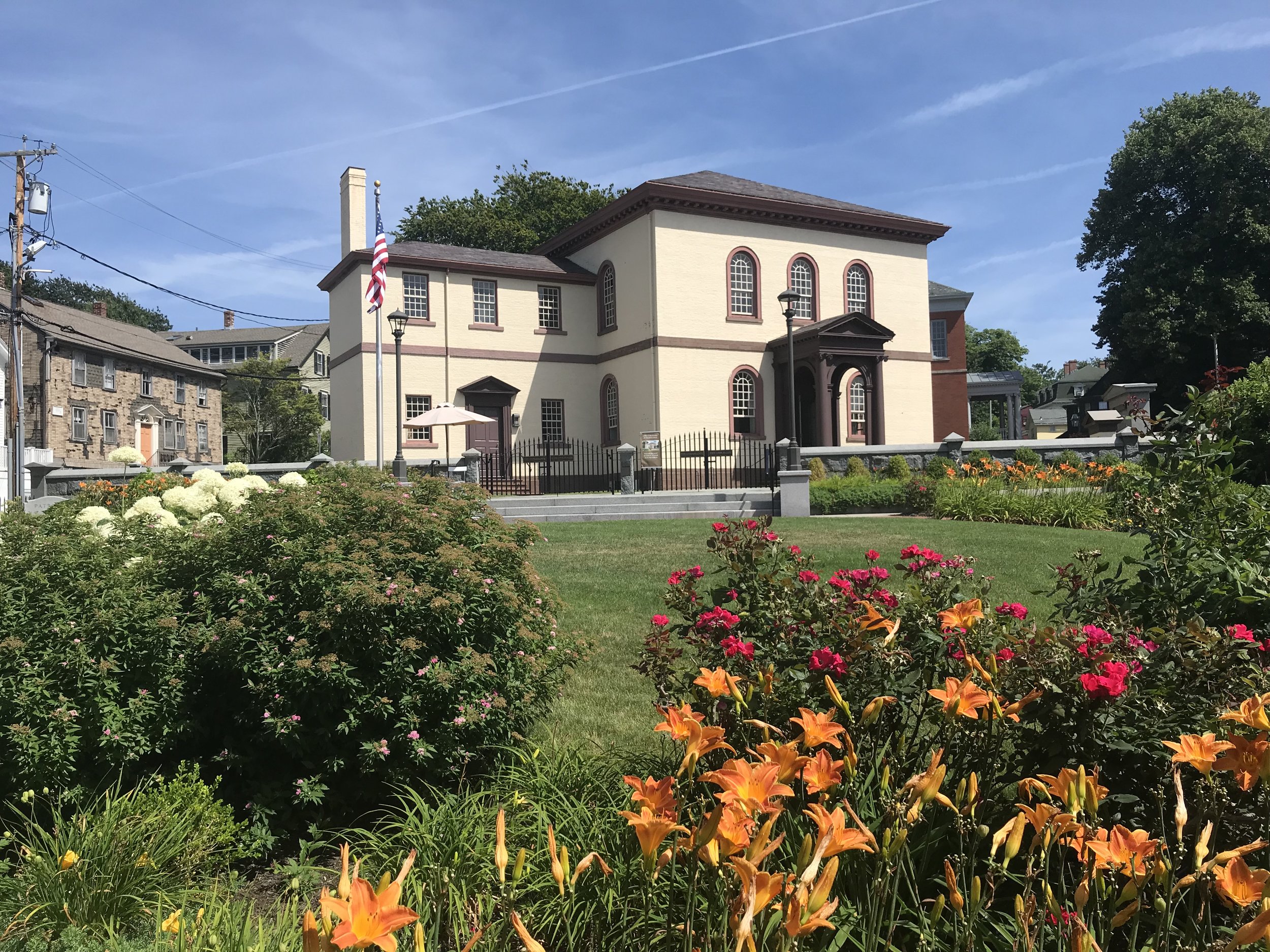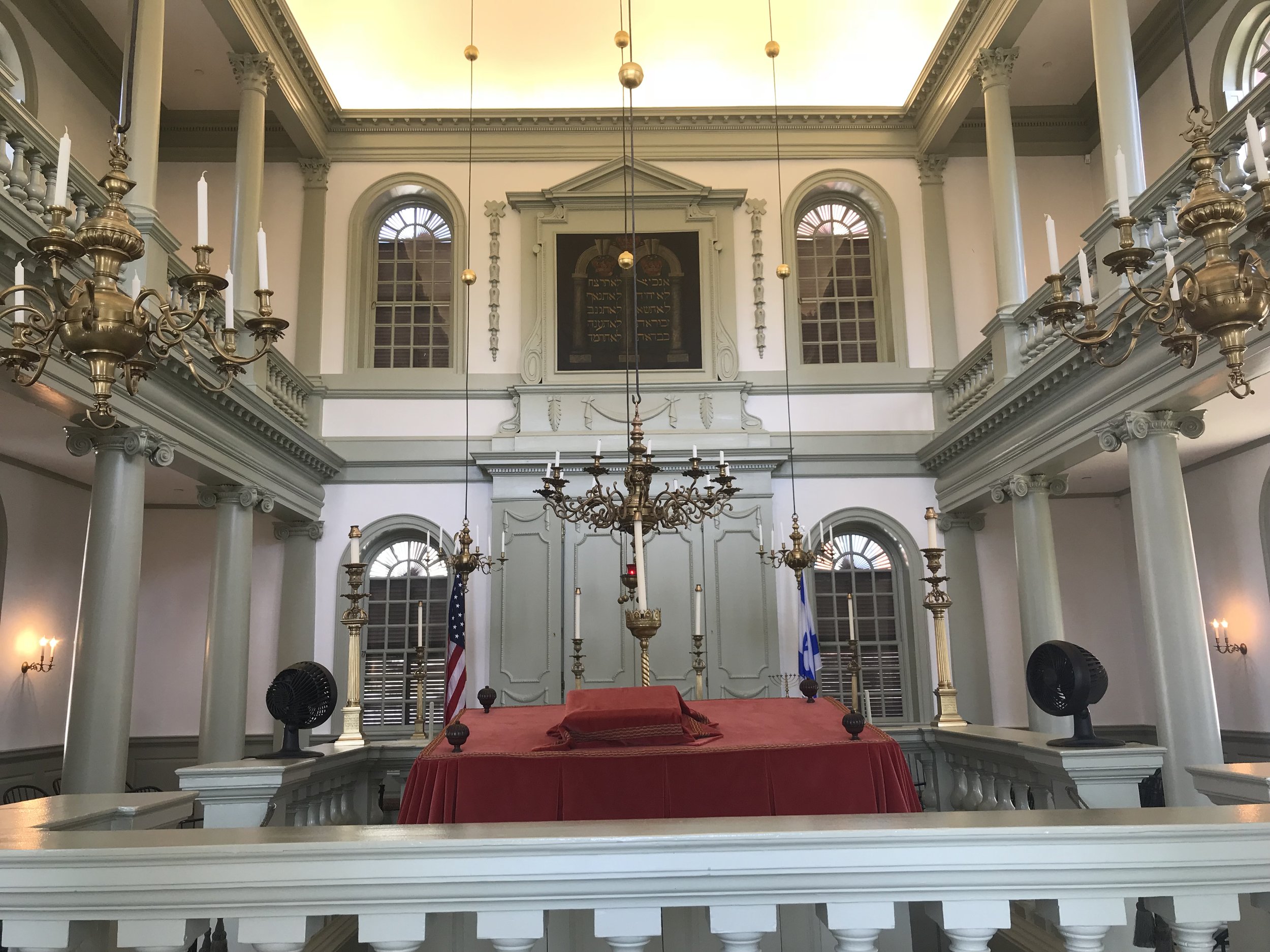Rhode Island’s ‘livelie experiment’ in freedom
By Rick Holmes
Aug. 3, 2018
Newport, R.I. – Rhode Island is the smallest state, and among the oldest. It was the last of the original 13 states to ratify the Constitution, which says something about Little Rhody’s big contribution to American values.
The New England beachhead in the invasion of North America by white Europeans was more sanctimonious than the for-profit incursions to the south. The Pilgrims and Puritans who came to Massachusetts were refugees from religious persecution who saw themselves bringing Christian virtue to the wilderness. John Winthrop proclaimed Boston to be a “city upon a hill,” a phrase modern politicians like John F. Kennedy and Ronald Reagan have cited as the key to American exceptionalism: That ours is a nation built not on kinship, but on values.
But the Puritans in Boston valued theocracy more than freedom. They built a colony where church and government were inseparable. Church rules and church dogma were enforced by civil authorities in Massachusetts with torture – stocks and pillories were no laughing matter – banishment and execution.
Among those banished was Roger Williams, a minister who disagreed with the authorities on a number of issues. He thought the Puritans should formally separate from the Church of England, that land should be purchased from Indians, not taken from them by royal decree, and that enforcement of the first four of the Ten Commandments should be left to individual conscience, not the government.
Williams was convicted of holding “new and dangerous opinions,” and ordered deported back to England. Before he could be arrested, he escaped, and founded a new colony, named Providence, at the headwaters of Narragansett Bay.
Religious tolerance and the separation of church and state were written into the founding documents of Providence and Newport, its neighbor settlement on Rhode Island. Williams described his community as a “Livelie Experiment,” a place of “absolute Soul-Freedom,” where people of all beliefs, or none at all, were welcome.
Rhode Island became a haven for religious refugees. Baptists joined Williams in Providence, where he co-founded the first Baptist church in America. Anne Hutchinson, leader of a group of Puritans banished from Boston over theological disputes, was an early founder of Newport. When the Boston elders declared war on Quakers – three were hanged from gallows on Boston Common – some of them found refuge in Rhode Island.
None of the refugees came farther than a small congregation of Jews. They had been expelled from Spain and Portugal by the Inquisition, which required all Jews choose between conversion to Catholicism, exile or death. They fled to the New World, but the Inquisition followed them. They tried to settle in New York, but Gov. Peter Stuyvesant, a notorious anti-Semite, refused to let them in.
But in Newport they found a welcoming community. In 1763 they built the Touro Synagogue, a proud, handsome building in a prominent downtown location, still functioning as the oldest synagogue in the U.S.
Rhode Island resisted ratifying the Constitution because it was silent on the issues of religious freedom and the separation of church and state. That was remedied in the First Amendment, which prohibits Congress from establishing a religion or restricting religious freedom.
In 1790, President George Washington visited Newport, accepting the welcome of assorted local notables, including the leader of the Jewish congregation, Moses Seixas, who expressed a hope for religious tolerance and respect among all citizens of the new country.
A few days later, Washington responded with a letter to the Hebrew Congregation of Newport that made religious tolerance a matter not just of law, but of shared values. Ours is a country, he wrote, that “gives to bigotry no sanction, to persecution no assistance.” It is a place, he told “the children of the stock of Abraham,” where “every one shall sit in safety under his own vine and fig tree and there shall be none to make him afraid.”
Americans still debate issues of church and state, often over questions at the margins, like whether a baker’s freedom of conscience allows him to refuse to sell a wedding cake to a same-sex couple. We still haven’t answered to everyone’s satisfaction whether the decision to bring a pregnancy to term is a matter of civil laws or individual conscience.
But thanks to the likes of Roger Williams and George Washington, we have laws that guarantee “soul-freedom” and shared values that promise people of all faiths can live together in mutual respect.
Rhode Island is a good place to remember that America’s story isn’t just one of conquest and exploitation. It’s also a story of courage in defense of principle and of innovations – “Livelie experiments” in freedom – that changed the world for the better.
Rick Holmes can be reached at rick@rickholmes.net. You can follow his journey at www.rickholmes.net. Like him on Facebook at Holmes & Co, on follow him on Twitter @HolmesAndCo.


